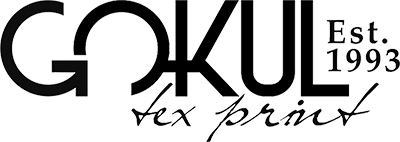A Sneak Peak at What Business Intelligence Can Do for the Textile & Apparel Industry
The textile and garment sector has long placed a high priority on business intelligence. Players stay current with market information and daily changing trends. Whatever the size of your company, technology may work miracles.
The textile and garment industry is about to be transformed entirely by modern tech-based business tools. Tech is used in every production element, including design, marketing, logistics, and sales. Intelligence technologies transform the textile and garment sector from brick-and-mortar traditional retail to online e-commerce.
To grow their operations as much as possible, the textile and garment industries are pursuing globalization. But it’s more complicated than it would seem. Reaching the correct market and utilizing a company’s full potential are made simpler with data-driven technologies.
Insights Into The Market
Business intelligence has provided marketing insights to the textile and garment industries. The tool offers comprehensive reports for products that demonstrate how they are doing in global markets. It provides insights into various needs based on in-depth research and market analysis.
The programme also provides raw material pricing for past, present, and future textiles and apparel. Businesses like to examine prices worldwide before acquiring raw materials for textiles and apparel. It gives businesses wishing to outsource raw materials a good idea.
The programme analyses every market from various perspectives to give businesses the finest possible research.
Data Of Trade
A business intelligence solution that is data-driven provides global authorised trade data. It assists companies in making strategic export-import decisions by giving them access to all the data necessary for international trade.
Examine the textile and clothing sector in light of the two key factors of product and geography. These two criteria allow businesses worldwide to compare trade data to determine their export and import destinations.
Additionally, the companies use tariff line data, which uses the Harmonized System (HS8–10-digit )’s level to verify that the classification of items is done correctly.
Competitive Research/ Analysis
Understanding competitors better is essential for success in the textile and clothing industry. Today’s competition is fierce, and it’s much harder to evaluate competitors’ performance.
Textile and clothing companies can track, analyse, and learn from the strategies of their rivals with the aid of business intelligence tools. The tool lets businesses pinpoint the flaws in their current approach and determine how to strengthen it to succeed.
Performance Evaluation Of A Brand
A business intelligence technology examines the performance of brands and retailers to produce a performance report. Any business can use that information to evaluate how other companies are performing in the worldwide market.
Any brand or retailer’s brick-and-mortar locations should be checked out. Additionally, organisations can monitor the financial performance of other companies based on their reporting period, operating income, net profit or loss, operating profit or loss, and a host of other variables affecting the company’s financial standing.
Businesses in the textile and garment industries can use business intelligence solutions to locate possible suppliers globally based on Brands and Geography.
Such organisations can, thanks to business intelligence, do the following-
- Gain awareness of their company
- Obtain and hold profitable clients
- Cut expenses and supply-chain optimization
- Increasing output
- Track performance, look for trends and patterns, and
- Perform an in-depth study of market trends and current events.
It becomes crucial for management to have precise and current information to fulfil objectives like increasing productivity, lowering costs, accelerating delivery times, guaranteeing quality, optimising production resources, and maximising profits. BI aids textile and garment firms in making wise decisions.
With the use of BI, businesses may better understand their needs. It gives the textile sector knowledge to evaluate rivals’ plans, describe the competitive environment, identify and access market trends, and pinpoint opportunities.
A list of a few analytical reports created with business intelligence:
- Analysis of customer walk-ins
- comparison of festival sales
- Brand analysis by age
- Analysis of sales performance
- Rise in-store traffic
- Analysis-based session sell
Retailers may check order status, follow shipments, or make new orders from online catalogues thanks to the value BI offers through customer self-service access to information on demand through the Internet. Sales leaders can proactively recommend alternatives to finish client shipments at full dollar value when a delivery issue is discovered. To help clients and the company maximise earnings, they can suggest new orders based on past sales success.
By lowering the time required to acquire and analyse reports and making quicker, more informed decisions, BI may help an apparel manufacturer save money. Rapid problem resolution helps prevent potential chargebacks and margin erosion that harm the bottom line. Small- to mid-sized apparel manufacturers can now effectively compete with larger businesses for storage space because of the affordability of modern BI solutions like 1 KEY.
Conclusion
In conclusion, business intelligence plays a crucial role in the textile and apparel industry, providing valuable insights and data-driven solutions to improve operations and drive growth. With the use of BI, businesses in the sector can gain awareness of their company, obtain and retain profitable clients, reduce expenses, increase output, and perform in-depth market analysis. Business intelligence offers a range of analytical reports, including customer walk-ins, festival sales, brand analysis, sales performance, and in-store traffic, among others. Retailers can also use BI to manage their online catalogues and check order status, while sales leaders can proactively recommend alternatives and new orders based on past sales success. With faster decision-making and rapid problem resolution, business intelligence can help apparel manufacturers save time and money, and compete effectively in the market.


Pingback: does blue cross blue shield cover cialis
Pingback: buy tadalafil reddit
Pingback: what are the side effects of cialis
Pingback: abdulhay ali ahmed alawadhiand bahrain pharmacy & general store
Pingback: mexican pharmacy codeine
Pingback: cheap cialis generic online
Pingback: buy viagra online no rx
Pingback: cialis canada pharmacy no prescription required
Pingback: generic viagra best online pharmacy
Pingback: playa del carmen pharmacy viagra
Pingback: cialis tadalafil & dapoxetine
Pingback: sildenafil pharmacy uk
Pingback: canada prescription viagra
Pingback: how to buy real viagra
Pingback: generic viagra canada price
Pingback: canadian pharmacy sildenafil 100mg
Pingback: viagra 100mg cost canada
Pingback: where can i buy cialis
Pingback: mambo 36 tadalafil 20 mg
Pingback: cialis company
Pingback: buy cialis united states
Pingback: flagyl higado
Pingback: sulfamethoxazole-trimethoprim for staph
Pingback: neurontin milligrams
Pingback: valtrex feedback
Pingback: tamoxifen lymphedema
Pingback: lyrica is used for
Pingback: metformin mellékhatásai
Pingback: furosemide.info
Pingback: lisinopril consulta
Pingback: empower pharmacy semaglutide reviews
Pingback: rybelsus coupon card
Pingback: rybelsus 14 mg price in india
Pingback: how does zoloft make you feel
Pingback: metronidazole-ethanol interaction
Pingback: drug interactions with keflex
Pingback: how to stop taking escitalopram 10 mg
Pingback: how much is cymbalta
Pingback: lamotrigin gabapentin
Pingback: can you take gabapentin and fluoxetine together
Pingback: goodrx duloxetine 60 mg
Pingback: price for viagra 100mg
Pingback: lexapro withdrawal
Pingback: can cephalexin give you diarrhea
Pingback: can you drink alcohol while taking ciprofloxacin
Pingback: does cephalexin cause diarrhea
Pingback: bactrim forte para que sirve
Pingback: bactrim for dogs
Pingback: can amoxicillin treat bv
Pingback: contrave experience reddit
Pingback: ezetimibe canada
Pingback: cozaar harley davidson
Pingback: depakote toxicity
Pingback: ddavp nasal spray manufacturer
Pingback: what is the difference between citalopram and escitaloprám
Pingback: effexor night sweats
Pingback: diclofenac sodico
Pingback: augmentin dosage for children
Pingback: average dose flomax
Pingback: diltiazem dose for afib with rvr
Pingback: baclofen vs flexeril
Pingback: amitriptyline overdose
Pingback: a nurse will instruct a patient taking allopurinol to take each dose
Pingback: aspirin after covid vaccine
Pingback: aripiprazole vs risperidone
Pingback: celexa vs prozac
Pingback: generic augmentin
Pingback: bupropion xl 150mg tablets 24 h
Pingback: where can i buy ashwagandha
Pingback: is celebrex a controlled substance
Pingback: acarbose torrinomedica
Pingback: protonix side effects mayo clinic
Pingback: what is remeron 30 mg used for
Pingback: repaglinide wikipedia
Pingback: abilify and tardive dyskinesia
Pingback: semaglutide liver damage
Pingback: robaxin interactions
Pingback: actos compensation
Pingback: difference between avodart and tamsulosin
Pingback: tizanidine and cipro
Pingback: venlafaxine smoking cessation
Pingback: nursing considerations for sitagliptin
Pingback: spironolactone ckd 4
Pingback: is voltaren gel harmful to dogs
Pingback: synthroid herpes
Pingback: ivermectin 0.08
Pingback: 40 mg prednisone for 5 days
Pingback: gabapentin and xanax
Pingback: can i take 3000 mg of metformin a day
Pingback: augmentin antibiotic
Pingback: how to take doxycycline
Pingback: amoxicillin pot clavulanate
Pingback: will keflex help a sinus infection
Pingback: how long does valacyclovir take to work
Pingback: side effects of lisinopril and amlodipine taken together
Pingback: does cephalexin have sulfa in it
Pingback: 100 mg trazodone for dogs dosage chart
Pingback: can i drink alcohol while taking ciprofloxacin 500mg
Pingback: lyrica classification
Pingback: provigil buy generic
Pingback: where to buy nolvadex